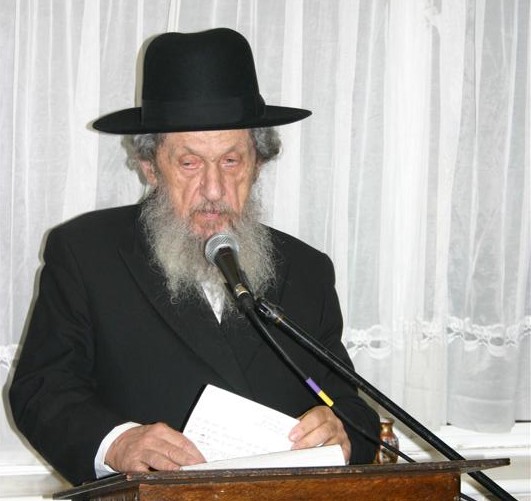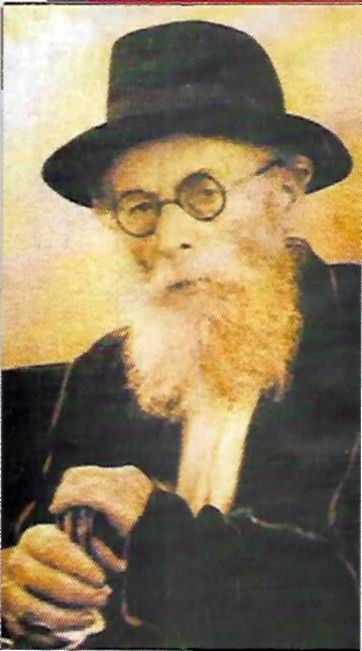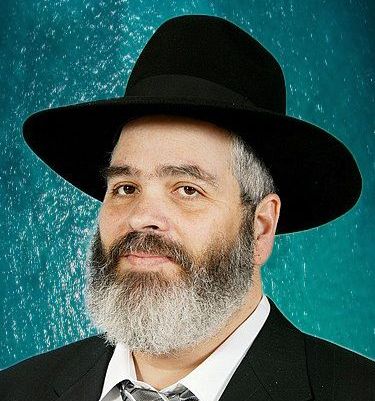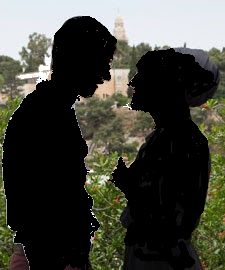  |
|
| ||||||
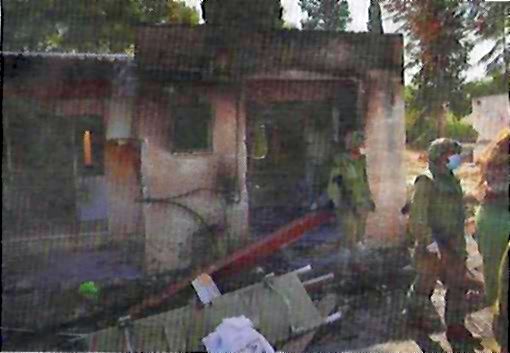
This Google Custom Search looks only in this website. HaRav Dov Lando: Say Tehillim 91 — Yoshev Beseiser
In a poignant message which HaRav Dov Lando delivered in wake of the dire situation, he said: "There is a powerful Measure of Justice, Midas HaDin, hovering over the world. We are not privy to the judgment of Hashem nor to the calculations of Heaven. The prayers we evoked on Yom Kippur were surely helpful but not conclusively. We must exert ourselves more through good deeds."
He added, "In the prayer of Nesane Tokef, we said: 'Who will live and who will die' etc. Not all of these prayers were accepted in Heaven. Hashem desires us to be forgiving to one another. Who can understand the judgments of Hashem or His means of recompense? But I did hear of an effective way to pray from HaRav Nissim Karelitz...
The war of 1948 was a very trying one for the Jewish people in the Land. Jewish settlement was being renewed, partially with Jewish survivors from the European furnaces. Nine excruciating months of fighting took place not only in Jerusalem but also in the center of the country, with shelling from nearby Jaffa. Fear was rampant.
In besieged Jerusalem, people huddled in their homes, fearing to emerge to the arms of Jordanian legionnaires. Halachic questions were dispatched by telegram to the godol hador, the Chazon Ish who sat in his simple apartment in Givat Rokach, Bnei Brak. He replied in terse but reinforcing and supporting words, occasionally adding sentences which offered dewdrops of comfort and reassurance.
He received a letter from a Yerushalmi Jew while Jerusalem was still under siege, with life and death hanging in the balance. It asked if it was recommended to try to leave the beleaguered city. The Chazon Ish hastened to reply that everyone in Yerushalayim was asking the selfsame question.
To another terrified Jew, he answered simply, "Recite repeatedly the perek against attacks." He was referring to Perek 91, which is denoted as thus in Maseches Shevuos (15b) as offering protection against adverse situations.
Our eyes tear. Our hearts refuse to believe. The scope of the calamity swells from hour to hour, day to day.
We, regretfully, are accustomed to terrorist attacks, including severe, devastating ones. We have seen sights too horrible to bear. Buses engulfed in flames. Jews murdered on the roads. Small children run over by human fiends. But even the most horrid tales which accompany us over the years have not prepared us for what we are experiencing right now.
The State of Israel has experienced difficult wars over the years against a brutal enemy. There was the Six Day War during which 736 soldiers were killed and the Yom Kippur War in whose course 2222 soldiers met that same fate. There were other wars, minor or major, but — as difficult as it is to say — that's the way of war, and Israel is inured to war. War claims lives. There are no 'sterile' wars, where no civilians are killed at the rear lines. Sad to say, that is the work of wars. But nothing of the past can resemble what we have seen in these past few days.
This wasn't a war where armies were poised one against the other. It was a mass massacre, very reminiscent of the pogroms which we read about in history books.
"The daughter of so-and-so to so-and-so" — what does this mean? Hashem designs marriage matches, but the rule is that finding one's predestined match is as difficult as the splitting of the sea! This series of fundamental issues and understanding of shidduchim was first published in 1992, about 31 years ago!
Part I
The Basic Parameters
The rules and guidelines which our ancient and latter sages proposed concerning the subject of choosing one's mate are anchored in the meeting of Eliezer, servant of Avrohom, and Rivka, by the well, in his search of the proper wife for his master, Yitzchok. The commentaries handed down to us over the generations concerning this chapter in the Torah give us the answers to many vital questions which preoccupy both sides before they make one of the most important and fateful decisions in their lives.
Our rabbis have established many instructions concerning shidduchim, especially so the sages of the last generation, many of which we hope to present in this series of articles.
* * *
Outstanding Articles From Our Archives
Opinion & Comment
by HaRav Shlomo Wolbe, zt"l
The non-Jewish way of thinking and way of life, which center around the aspiration for a life of comfort and luxury, have filtered into our midst. Every fad Parisian tailors invent is leaped at in Eretz Yisroel as well. And when New York Bohemians grow their hair long the trend is imitated here, too. All this is part of the secret of shibud malchuyos, our state of bondage to foreign rule. We consider ourselves independent but in reality Klal Yisroel is in a state of total concealment.
Today shibud goluyos is on the rise. It used to be more palpable in gashmiyus, whereas now it is felt more in ruchniyus. This bondage has penetrated our circles. We all sense it. And even those who conquer their yetzer and do not pursue it, still see beauty in it. We like their songs and their cheap secular newspapers are not muktzeh to us, even though everybody knows and feels how much damage can result from every glance at the lengthy descriptions of base crimes and heretical views. How much have we already been poisoned by spiritual shibud malchuyos?
IN-DEPTH FEATURE
by Y. Ben Avi
An account of many Torah works that were written and preserved in difficult circumstances.
The Pri Chodosh, work of R' Chizkiyah de Silva, was first published in Amsterdam in 5460 (1700). It was printed posthumously by his son, R' Dovid de Silva. In the introduction, the son relates the miracle that involved the manuscript while he was transporting it from Jerusalem, where the Pri Chodosh had been living until his death, to Amsterdam.
"During the voyage, we were attacked by pirates who stripped us of our valuables and searched our baggage. They were about to seize the precious manuscript but thanks to Hashem's mercy, they had a change of mind and agreed to give me back the work of my deceased father. And, `I thank You Hashem for having been wrathful with me but Who turned away Your anger and comforted me' " (Yeshayohu 12:1).
Another author whose writings were spared by robbers was the Maharam Ash, R' Meir ben R' Yitzchok Eisenstadt. He authored the responsa Ponim Meiros and Kosnos Ohr on the Torah. The incident referred to here involved a different work of his, the Ohr Hagonuz, which was printed posthumously by his son, R' Yehuda from Bialy.
IN-DEPTH FEATURES
by Rabbi Dov Eliach
Part Two
First Be A Man
In his typically fascinating and impressive manner, HaRav Shechter zt'l, provided instruction about the fundamentals of Kelm mussar although as he put it, he was giving us, "the merest touch, the smallest amount, while balancing on one foot."
Rav Shechter: I made note of three main principles of Kelm mussar. Though there are more, I tried to place them in [broad] categories.
The first one, which is the starting point of everything, is: "First be a man." People understand the prayer [said following the morning blessings], Le'olom yehei odom yerei Shomayim, as meaning, "A person should always fear Heaven." But in Kelm they put a stop after the first three words, so that it means, "Always," or "first, be a man." Then they would start again and say, "A person should always fear Heaven."
The meaning of this is very straightforward. Rabbi Akiva said, "Man is precious because he was created in Hashem's image. As an extra token of endearment he was informed of this . . . Yisroel are precious because they are called Hashem's sons. As an extra token of endearment they were informed that they are called Hashem's sons" (Ovos 3:14).
Creation in Hashem's image refers to man's ability to think. "And man's advantage over animals is naught" - that exist without thinking, then - "for all is vanity" (Koheles 3:19). But with the ability to think, man is in Hashem's image. This is a separate advantage, distinct from that of Yisroel's being "precious because they are called Hashem's sons."
The common understanding of this is that on the level of "Yisroel are precious" there is no need for [developing] the [lower] level of "in Hashem's image" but this is untrue. Even a person who learns Torah and merits a connection to the level of "Yisroel are precious," still needs to relate to the fundamentals. In our context the fundamental level is "Derech eretz kodmoh laTorah - (Correct behavior precedes Torah)."
In what sense does correct behavior precede Torah?
In Kelm they viewed it as the foundation upon which the entire edifice [of a person's character] is erected.
|
||||||




.jpg)
